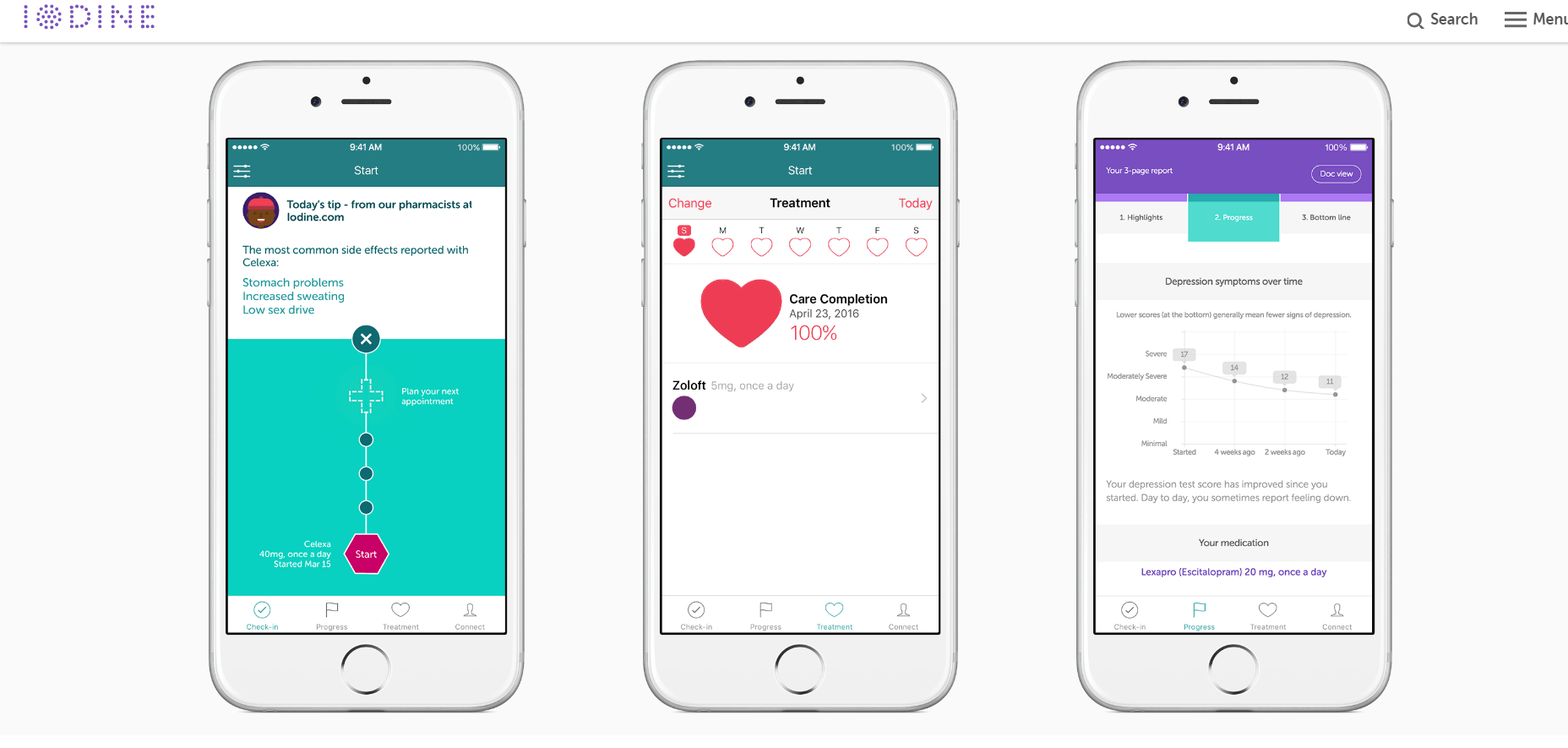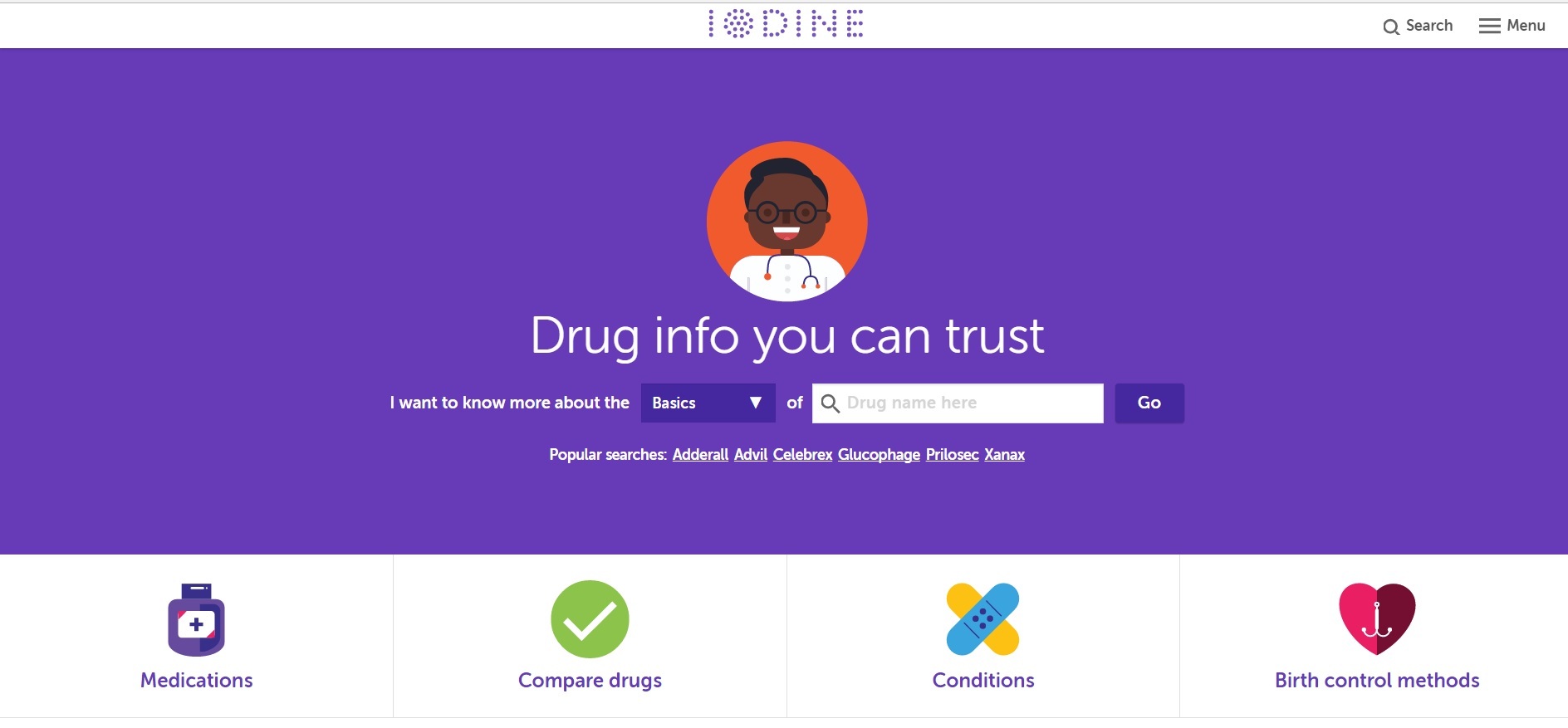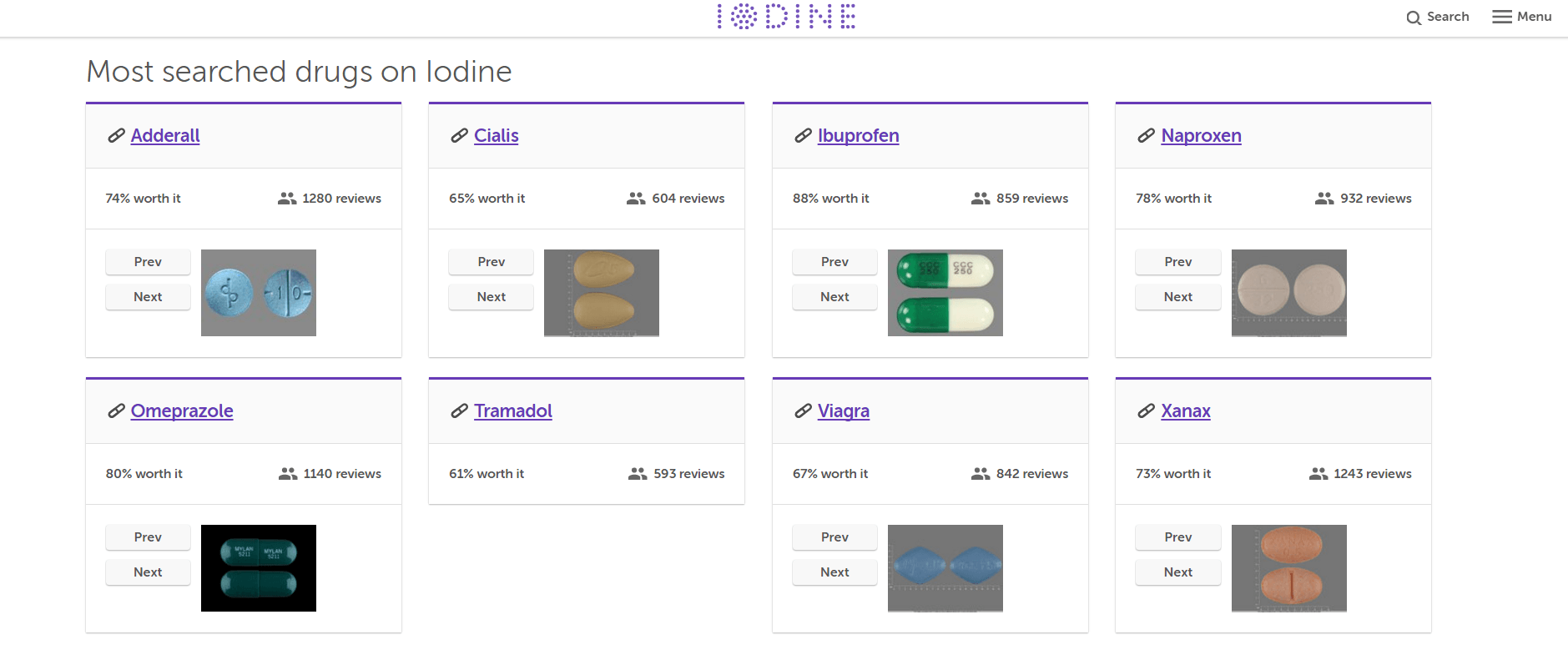Iodine: the ‘Yelp of Medicine’

Iodine is the ‘Yelp of Medicine,’ creating tremendous value by crowdsourcing reviews of pharmaceuticals to help patients make better-informed choices about their medications. But the question remains: can they capture any of that value?
IODINE
Iodine is the ‘Yelp of Medicine,’ a website that crowdsources and aggregates reviews of pharmaceutical drugs and other medical treatments in order to help patients make better-informed choices about their medications. Building on a foundation of traditional research (i.e. clinical trials and product labels) and existing data (i.e. pharmacist reports, insurance, etc.), Iodine crowdsources patient-generated content to create detailed reviews of over 500 medications and therapies. An initial Google Consumer Survey of 100,000+ U.S. citizens, now supplemented with inbound reviews, has made Iodine a source of valuable information for patients trying to learn about drugs’ efficacy (or failure rates), side effects, and whether or not a drug is ‘worth it.’
Managing the Crowd: Challenges
Thomas Goetz, co-founder of Iodine, was very careful in managing the crowdsourced data that populated the platform initially. After all, in the context of medical decisions, a ‘minimum viable product’ with some possible quality defects really isn’t viable at all. To gain as unbiased a sample set of reviews as possible, Goetz’s team used Google Consumer Surveys to solicit reports from 100,000 U.S. citizens. In this way, Iodine hoped to avoid what they term the ‘silence of the satisfied user’ – when pharmaceutical users with limited-to-no side effects, or moderate improvements in their condition don’t bother to report their results. Many companies focused on user-generated content struggle with acquiring too-biased a sample, as contributors are most likely to post reviews when they are extremely dissatisfied or extremely pleased with an experience. Iodine worked to mitigate this bias by not relying solely on volunteer reviewers – an excellent way to improve data quality while growing a review base quickly at launch.
Users who have found Iodine organically and left reviews of their own volition are not compensated for doing so. Their sole incentive in leaving a review is the opportunity to improve the experience of other patients with the same conditions. The Iodine team also rigorously checks its survey responses and crowdsourced reviews for spam or fraud prior to including them in their data sets or publishing them on the website; each review is individually checked. Additionally, the overall data set is analyzed for patterns that may conflict with clinical data; discrepancies are further reviewed.

Value Creation
Iodine has created value for patients by giving them access to a wealth of information: unbiased reviews of drugs and therapies, a cumulative repository of information on what treatments are effective or ‘worth it’ in different circumstances, and tidbits of relevant information that your doctor or pharmacist might neglect to mention. This is particularly beneficial in the context of comparing medications. Iodine recently launched a tool to help users compare different forms of birth control (which has gained significant press and traction over the course of the 2016 election cycle, and in early 2017). Iodine also launched an app called Start, designed to help patients with mental health issues track their progress as they adjust to new treatments and medications. Beyond giving patients access to information, Iodine has also given them a voice by enabling them to share their experiences with different treatments – creating a potential feedback loop for doctors and pharmaceutical companies.
Beyond patients, Iodine has created value for several other key healthcare entities. For one, pharmaceutical companies with well-reviewed drugs might benefit from the positive earned media (note the Cialis vs. Viagra comparison).
The greatest benefit, perhaps, is to the healthcare system overall, as Iodine is increasingly focused on improving drug regimen adherence. Recent studies have shown that about 50% of chronic disease sufferers do not take their drugs as prescribed, resulting in a devastating 125,000 deaths and costs of $100-297 billion annually. If Iodine manages to even slightly improve patient adherence – by helping patients to be better-informed about side effects and better-prepared to stick with the regimen over time – this could result in thousands of lives lengthened and billions of dollars saved. Further savings may accrue to health insurance providers as Iodine highlights the similarities between brand name drugs and generics, improving patient and doctor confidence in generics.
Finally, Iodine is also providing tremendous benefit to the FDA through its work as a developer on OpenFDA; Iodine received a $1m+ grant to advance the OpenFDA platform, making FDA information more accessible to other developers and the general public.
Value Capture & Growth Potential
Iodine clearly has the potential to create tremendous value for society, yet its ability to capture value remains uncertain. While they raised moderate amounts of early funding, and won the OpenFDA grant, no clear business model emerged that would enable Iodine to monetize. Indeed, all of its apps were made free to the public, as is the general Iodine website; it is clear they have not attempted to monetize the patient side of the value Iodine has created.
In January of 2017, a merger with GoodRX was announced, but the deal terms have not yet been released. The merger marks an apparently-successful startup exit for Iodine, which is expected to continue to operate as-is going forward. Yet the Iodine team has yet to unveil a path to revenue generation and positive cash flow.
Let’s help Team Iodine out with a few ideas: how do you think they could capture value from their crowdsourced medication reviews, and decision-making and behavior change apps?
—
Sources:
All images from: http://www.iodine.com
https://rockhealth.com/companies/iodine/
https://www.crunchbase.com/organization/iodine#/entity
http://www.dddmag.com/article/2015/03/meet-thomas-goetz-co-founder-iodine
http://www.inc.com/magazine/201606/thomas-goetz/small-companies-big-customers.html
http://www.mobihealthnews.com/36837/google-wired-vets-team-up-to-launch-d2c-drug-data-startup
https://www.wired.com/2016/10/smarter-way-compare-birth-control-methods/
http://medcitynews.com/2016/08/iodine-mental-health-apple-carekit/?rf=1
-review-site-iodine-launches-antidepressant-study
https://www.wired.com/2016/10/smarter-way-compare-birth-control-methods/
http://medcitynews.com/2016/08/iodine-mental-health-apple-carekit/?rf=1





Great post Sonali! Iodine is a really interesting platform. I wonder whether they could monetize by targeting users who’ve had negative experiences with a certain drug (say, Aspirin) with promotions on similar drugs (Ibuprofen or whatnot). When users post a negative review (as indicated by wouldn’t recommend), have users select the negative symptoms they’ve had, then surface an “[X drug] can alleviate your problems without the negative side effects you’ve indicated. Ask your doctor about [X]!” ad. Of course Iodine would have to be careful with this route as to not anger the negative drug’s maker, but realistically the maker has already lost that customer.
Hi Sonali. Great post! I wonder how useful crowdsourced recommendations about medicines or drugs are? Every patient has a very different medical background and history and just because a drug might have worked for a majority of people that might not mean that it is the best drug or therapy for a given patient. How do you think Iodine can tackle this problem?
Great post Sonali! I’m a fan of Iodine. It seems like the value of Iodine is hinged on the breadth of their patient data and reviews – I wonder if platforms like PatientsLikeMe would have an advantage having owned more of the entire patient experience including reviews on drugs (PLM recently formed a partnership with Walgreens on drug adherence). I might think also about how Iodine might partner with healthcare providers, physicians as a way to shuttle in more customers or adding other drug or treatment experience into the platform.
Nice post, Sonali! While reading the post I started thinking whether it might actually be harmful to patients to be super involved and compare every medication they are taking instead of relying on Doctors/health professionals? Also, is there a way that they could pivot to getting crowdsourced information from what Doctors believe effective drugs are based on their experience with the patients and then monetize that information through Doctors?
Somali – Fantastic post! I love the fact that we won’t go to a restaurant without reading reviews but we take medications and medical information as gospel. I think my only hesitation is aligned with Bipul’s point. I think it has been fairly well documented how often sites like WebMD are over used and maybe even abused by non-doctors diagnosing themselves. I wonder what the risk is of patients making up their minds about medications on their own and then simply seeking out a doctor to get it for them.